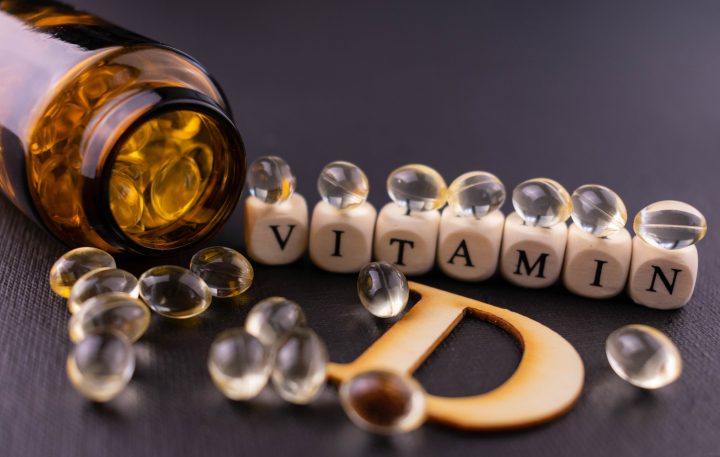Do You Need More Vitamin D3?

Vitamin D deficiency is linked to obesity and cancer
Raise your hand if you think sunshine causes skin cancer. For decades, doctors and the ‘cancer industry’ have warned us to stay out of the ‘dangerous’ sunlight and/or use plenty of sunscreen. But is this good advice?
Did you know vitamin D deficiency has been linked to cancer, diabetes, obesity, osteoporosis, rheumatoid arthritis, inflammatory bowel disease, multiple sclerosis and autism?
Vitamin D isn’t really a ‘true’ vitamin, as we don’t need food to attain it. Natural sunlight allows our body to create vitamin D and even destroys excessive amounts. How does that happen? When the sun’s ultraviolet B(UVB)rays hit your skin, they trigger a pre-cholesterol molecule which is then turned into vitamin D3 (aka cholecalciferol).
According to an Italian team, led by Luisella Vigna of the University of Milan, research has shown that vitamin D deficiency is associated with a higher risk of obesity and obesity-related complications.
A new study included 400 overweight and obese people with vitamin D deficiency who were put on a low-calorie diet and then divided into three groups. One group took no vitamin D supplements, while the two other groups took either 25,000 international units (IU) or 100,000 IU of vitamin D per month.
After six months, participants in both vitamin D supplementation groups had lost more weight and had greater reductions in their waistlines than those who hadn’t taken the supplements.
The researchers suggest that all overweight and obese people should have their vitamin D levels tested.
Researchers in Belgium appear to be the first to show that vitamin D also lowers C-reactive protein (CRP), a measure of inflammation in the body, in critically ill patients. CRP is elevated when there is inflammation in the body, and chronic inflammation is a risk factor for a number of conditions including coronary heart disease, diabetes, obesity and cancer.
The mechanisms by which vitamin D reduces the risk of cancer are fairly well understood. They include enhancing calcium absorption, inducing cell differentiation, increasing apoptosis (programmed cell death), reducing metastasis and proliferation, and reducing angiogenesis (formation of new blood vessels).
The authors of a 2006 article in the American Journal of Public Health state, after a review of more than 60 studies on vitamin D and cancer, that cancer occurrence and death could be reduced with improved levels of vitamin D in the body. The incidence of breast cancer could be reduced by 50% and colon cancer by 80%!
And a June 2007 Creighton University School of Medicine study indicated that appropriate levels of vitamin D3 (and calcium) reduced the risk of cancer by a staggering 77%! A 2009 study by a group of Leeds University researchers actually found that higher levels of vitamin D were linked to improved skin cancer survival odds, while other studies have found that vitamin D has a connection to a strong immune response in the body.
Summary of the benefits of Vitamin D3
Bone growth and density – Vitamin K2 works synergistically with vitamin D3 to enable healthy bone formation, and to keep calcium in bones and out of soft tissues like the heart, joints, and kidneys.
Immune system function – Vitamin D3 protects lungs from infection, lowers your risk for autoimmune conditions, and is thought to help prevent certain cancers. Recent studies show positive associations between high vitamin D3 levels and protection from viral infections, with fewer illnesses, faster recovery times and less severe symptoms.
Obesity and body composition/performance – Vitamin D has been shown to assist in weight loss, improve blood sugar balance and help increase aerobic capacity (endurance), muscle growth, strength, and power production.
Brain, mood, mental clarity and productivity – studies show positive associations between adequate vitamin D levels and brain health including depression and cognitive performance.
Tissues, organs and glands – Vitamin D is known to support almost every cell in your body, with well-researched benefits for the cardiovascular system, prostate, colon and breast tissue.
How can I get more Vitamin D?
The best place to get vitamin D is natural sunlight. Your body is able to build up reserves over the summer months if you get plenty of exposure to sunlight, however, in the winter time, you’ll probably still need a good vitamin D3 supplement. But take note that many vitamin D supplements are ineffective.
Here’s why:
The vitamin D in many vitamin supplements is vitamin D2 and is often synthetic. The form of vitamin D that’s needed to prevent cancer and degenerative diseases is vitamin D3 (cholecalciferol) and, as I mentioned above, is produced from the UVB rays in sunlight. That’s why I frequently refer to sunshine as the ‘most affordable obesity and cancer-fighting nutrient in the world’. Think about it, you can get a lifetime supply for FREE!
However, with most of our time spent indoors, it can be nearly impossible to obtain enough vitamin D3 from the sun alone.
Few foods are naturally rich in vitamin D3. The best sources are oily fish like salmon or sardines and fish liver oils. Smaller amounts are found in egg yolks, cheese, and beef liver.
Supplementation of Vitamin D3 is often beneficial.
New Zealand doctors are discouraged from testing vitamin D levels as it’s considered more economical to just prescribe Vitamin D3 to at-risk persons (AKA almost everyone).
Most retail brands suggest taking 1000IU of vitamin D3 daily, but recent studies show that higher doses combined with adequate vitamin K2 may be much more effective.

